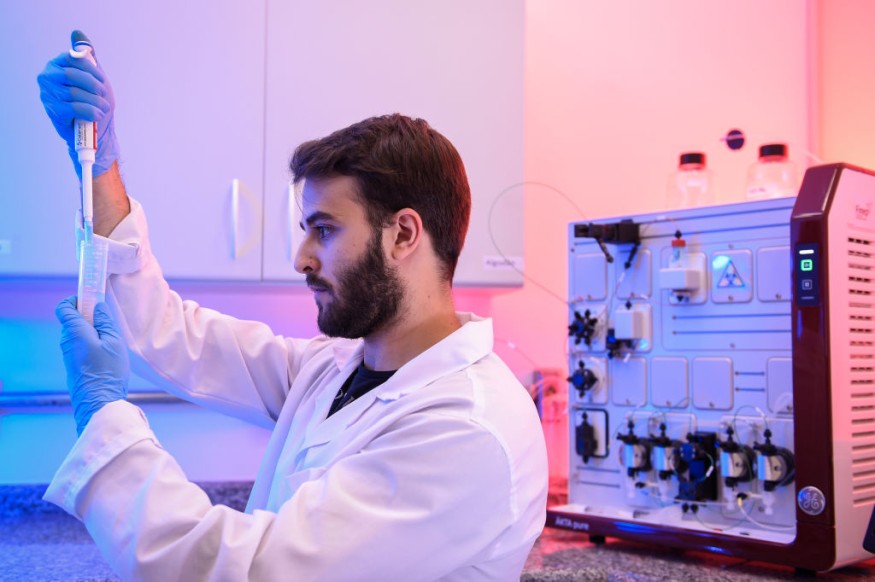Every American Won't Be Able to Get COVID-19 Vaccine at Once

National Institutes of Health Director Francis Collins has asked the National Academy of Medicine last month to develop guidelines for who should get the first doses of COVID-19 vaccine.
The Academy's president, Dr. Victor Dzau, said it will allow the public to know that it is transparents and it is not political.
Dzau said the American people will want to know how these decisions are made and ask questions why they are not getting it.
"Why am I not getting it first?," Dzau was quoted in a CNN report.
The Trump administration wants to prove it can release a COVID-19 vaccine quickly, after months of criticisms from testing to personal protective equipment.
This also means deciding which group of people will be first in line for vaccination once available.
The administration is asking top health officials and industry experts to lead vaccine plans rather than politicians. But many are still concerned that the overall efforts, called Operation Warp Speed, are still done in secrecy.
Dr. Paul Offit, director of the Vaccine Education Center at the Children's Hospital of Philadelphia said that the overall effort was sort of being handled like a secret weapon, which is never good.
Offit said that transparency is always good.
Who Will Get It First?
Unfortunately, every American will not be able to get a COVID-19 vaccine at once, if a vaccine is approved.
NIH's Dr. Collins said during a Senate panel earlier this month that people are still uneasy that the government is calling the shots on who will get the COVID-19 vaccines once it is available.
This will mean that there will be a decision who is most vulnerable to the disease during a deadly pandemic.
Health officials and industry experts will have to consider at risk populations such as those in assisted-living facilities or prisons, people who are working in close spaces like meat packing plants, and review the state of Americans with preexisting conditions.
The National Academy of Medicine aims to have its recommendations out in public by August or September.
The Advisory Committee on Immunization Practices (ACIP), the second panel of vaccine adviser for the Centers for Disease Control and Prevention, is also creating a set of guidelines.
It is still unknown if the administration will select one set of recommendations over the other or both will be taken into consideration when making its final decisions.
ACIP had an online meeting last month to discuss who counts as an essential worker.
It was also discussed if teachers should be in the priority list, as well as pregnant women. Race and ethnicity is also being considered if it should be in priority considerations.
"If we fail to address this issue of racial and ethnic groups as a high risk in prioritization, whatever comes out of our group will be looked at very suspiciously and with a lot of reservation," Panel chairman Dr. José Romero was quoted.
Member of Operation Warp Seed Dr. Matt Hepburn started his presentation on COVID-19 vaccine by asking the panel to bear with his "lack of ability to provide a lot of specifics about what we're doing."
Hepburn then insisted that they are not a secretive organization that's working with unknown people.
When Will There Be A Vaccine?
Vaccine experts are calling out the Trump administration for saying an unrealistic timeline to the American people.
The chief executive of pharmaceutical giant Merck, Ken Frazier, said that they do not have a great history of introducing vaccines quickly in the middle of a pandemic.
Vaccine expert Vijay Samant said you can not give an optimistic message that a vaccine is going to be developed in December.
He said people will wonder what happened if there is still no vaccine come December.
Samant said if you are lucky it could take six months to a year to vaccinate enough of the population to reduce the spread, once a vaccine is available.
Check these out:
Will a COVID-19 Vaccine be Ready Before the End of 2020? Here's What Experts Say
Finger-Sized Microneedles: Potential Vaccine Against COVID-19
Here are the Results of Some COVID-19 Vaccines After Human Clinical Trials
Subscribe to Latin Post!
Sign up for our free newsletter for the Latest coverage!
© 2026 Latin Post. All rights reserved. Do not reproduce without permission.















